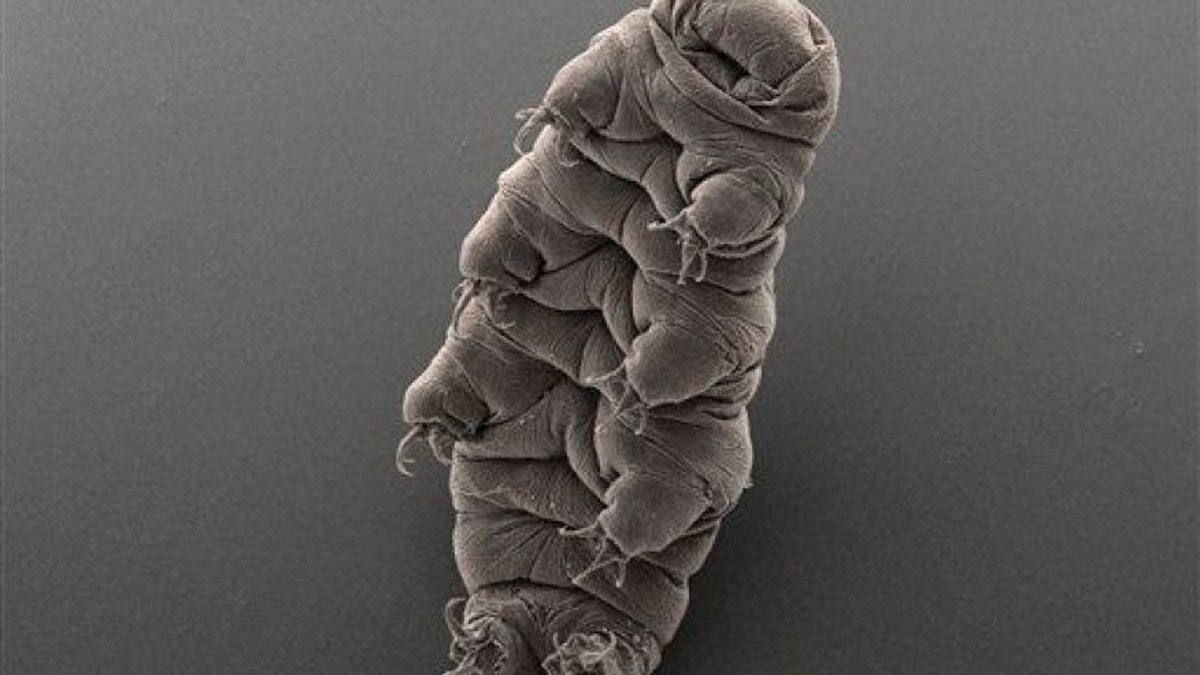
A tardigrade. (AP Photo/Bob Goldstein & Vicki Madden, UNC Chapel Hill)
Cockroaches can survive a nuclear winter, but the "water bear" could outlive everything — at least until the Sun dies.
Known as tardigrades, these tiny, eight-legged creatures are likely to keep living long after human beings are gone, according to a new study by Oxford University researchers.
BEETLES THREATEN AVOCADO INDUSTRY
The study, done by Dr. David Sloan, Dr. Rafael Alves Batista and Dr. Abraham Loeb, was publsihed in the journal, Scientific Reports, and focuses on doomsday-like events, including supernovae, gamma-ray bursts, large asteroid impacts, and passing-by stars. Their findings indicate that the tardigrades will outlive us all.
"Surprisingly we find that although human life is somewhat fragile to nearby events, the resilience of Ecdysozoa such as Milnesium tardigradum renders global sterilisation an unlikely event," the study's conclusion reads.
Tardigrades is its phylum within the Ecdysozoa superphylum, which includes insects, crustaceans, arachnids and more. They can live without food or water for 30 years and have even survived in space, with Russia claiming they found them clinging to the outside of the International Space Station, alive.
The creatures, which are no more than half a millimeter long, can also withstand extreme temperatures. "Tardigrades can survive for a few minutes at temperatures as low as −272 °C or as high as 150 °C, and −20 °C for decades," the researchers note.
While outlasting everyone and everything else on Earth is one achievement to be commended, tardigrades could also help aid in the search for aliens.
BEWARE FIRE ANT COLONIES FLOATING ON FLOODWATERS, ALABAM RESIDENTS WARNED
"In the context of the search for extraterrestrial life, it is useful to establish the necessary conditions for life to be present for such observations," the study notes.
The study continues: "To establish this we break from the usual study in the literature of the possible paths to ending human life, and broaden the analysis to consider those astrophysical events which could rather remove all life by analysing the most resilient of species–tardigrades."








































